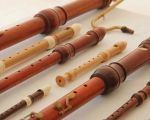- 1-Importance-of-Regular-Instrument-Maintenance
- 2-Cleaning-Techniques-for-Different-Instruments
- 3-Proper-Tuning-and-Adjustments
- 4-Optimal-Storage-and-Environmental-Care
- 5-Handling-Repairs-and-Professional-Servicing
- 6-Real-Life-Examples-of-Instrument-Care-Success
- 7-Finding-the-Right-Products-and-Resources
1. Importance of Regular Instrument Maintenance
Maintaining your musical instruments regularly is crucial to ensuring their longevity and optimal performance. Neglect can lead to deterioration of materials, compromised sound quality, and costly repairs. Whether you play string, wind, percussion, or keyboard instruments, consistent care protects your investment and enriches your playing experience.
Understanding how to maintain your musical instruments to ensure longevity sets the foundation for a rewarding musical journey.
2. Cleaning Techniques for Different Instruments
Cleaning methods vary widely depending on the instrument type. For string instruments like guitars and violins, wiping down strings and body with a soft cloth after playing removes oils and dirt. Wind instruments require careful cleaning of mouthpieces and internal tubing to prevent buildup.
Avoid harsh chemicals and use instrument-specific cleaning solutions. Regular cleaning prevents damage and maintains aesthetic appeal.
3. Proper Tuning and Adjustments
Proper tuning is essential not only for sound but also for the health of your instrument. Regular tuning prevents undue stress on strings, keys, or valves. Some instruments benefit from periodic adjustments by a professional to maintain mechanical integrity.
Learning basic tuning skills empowers musicians to care for their instruments daily and catch potential issues early.
4. Optimal Storage and Environmental Care
Instruments are sensitive to temperature, humidity, and light. Storing them in protective cases in stable environments reduces risk of warping, cracking, or corrosion. Use humidifiers or desiccants as needed and avoid direct sunlight or extreme temperature fluctuations.
Thoughtful storage extends the life of your instruments and preserves their sound quality.
5. Handling Repairs and Professional Servicing
Timely repairs prevent minor issues from escalating. While some maintenance can be done at home, professional servicing ensures complex repairs and adjustments are properly handled. Building a relationship with a trusted luthier or repair technician is invaluable.
Regular check-ups can catch hidden problems and keep your instrument in top shape.
6. Real-Life Examples of Instrument Care Success
Take the case of Emma, a violinist who maintained her instrument diligently by cleaning after every use and storing it in a humidity-controlled case. After years of use, her violin still delivers rich tones and requires minimal repairs, illustrating the power of consistent care.
Stories like Emma’s inspire musicians to prioritize instrument maintenance as part of their practice routine.
7. Finding the Right Products and Resources
For effective maintenance, choosing quality cleaning kits, tuners, and storage accessories is vital. Beat Trigger offers a curated selection of trusted products and expert guidance to help musicians maintain their instruments with confidence.
Access reliable tools and advice at Beat Trigger to ensure your musical instruments serve you beautifully for years to come.








